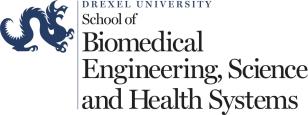Effects of Chronic LPS Stimulation on the Response of Macrophages to Subsequent Stimuli
Tuesday, May 31, 2016
10:00 AM-12:00 PM
BIOMED Master's Thesis Defense
Title:
Effects of Chronic Lipopolysaccharide (LPS) Stimulation on the Response of Macrophages to Subsequent Stimuli
Speaker:
Reham Garash, Master’s Candidate, School of Biomedical Engineering, Science and Health Systems
Advisor:
Kara Spiller, PhD, Assistant Professor, School of Biomedical Engineering, Science and Health Systems
Abstract:
Wound healing constitutes a brief inflammatory phase, followed by a proliferative phase and ends with a longer period of tissue remodeling. Post tissue injury, macrophages initiate an inflammatory cascade to propagate wound healing. Macrophages initially adapt to a pro-inflammatory “M1” activation state, followed by an anti-inflammatory “M2” state with macrophages that are associated with the resolution of the initial inflammation. The M1-to-M2 transition has been shown to be crucial to facilitate healing. Impairment of this phenotypic switch is associated with chronic inflammation. Chronic inflammation is characterized by a sustained M1 activation state. Noteworthy, patients suffering from chronic inflammatory conditions have systemically higher than normal lipopolysaccharide (LPS) levels, which is thought to trigger a chronic and systemic pro-inflammatory activation of macrophages. Surprisingly, while normal wounds possess an initial and robust inflammatory reaction, recent studies have highlighted that chronic wounds suffer a lower than normal initial inflammatory state in response to otherwise potent pro-inflammatory stimulation.
The goal of this work is to study the impact of chronic LPS stimulation on macrophages' pro-inflammatory reaction to a fresh LPS treatment and its subsequent capacity to respond to IL4/IL13, “M2” promoting cytokines. This work highlighted that chronic LPS stimulation rendered macrophages hypo-responsive to fresh LPS stimulation. However, it did not impact their “M2” switching capacity. Interferon gamma (IFNG), a pro-inflammatory cytokine, treatment of chronic “M1” macrophages did not improve their responsiveness to LPS.
Contact Information
Ken Barbee
215-895-1335
barbee@drexel.edu

Location
Papadakis Integrated Sciences Building (PISB), Room 103, located on the northeast corner of 33rd and Chestnut Streets.
Audience
- Undergraduate Students
- Graduate Students
- Faculty
- Staff